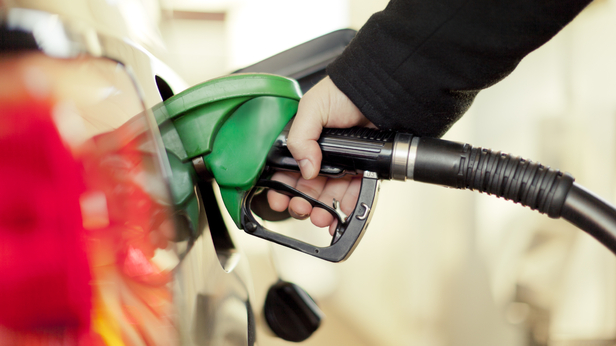
Editor’s Note: Last week, MacIver posted a column from conservative blogger Owen Robinson (www.bootsandsabers.com) with his thoughts on the need to raise the gas tax or car registration fee in Wisconsin. Our friend George Mitchell asked if he could respond to Owen’s column. In the spirit of encouraging a healthy and respectful debate on this important issue, we now share George’s thoughts even though he is a 49ers fan.
Wisconsin’s Department of Transportation is preparing a two-year budget proposal that will be submitted to Governor Walker September 15. It will illustrate the impact of the Governor’s opposition to increasing the gas tax.
The non-partisan Legislative Fiscal Bureau projects nearly a billion dollar gap between transportation spending in the current two-year biennium and available revenue in the next two-year period.
In a recent column in the West Bend Daily News (also posted by the MacIver Institute), Owen Robinson said Wisconsin could save Wisconsin $1.1 billion a year by duplicating the transportation spending of neighboring Minnesota. He wrote:
“If Wisconsin just lowered its spending to the same amount per mile as Minnesota and prioritized maintenance over construction, it would save Wisconsin $1.1 billion per year and solve the transportation budget problem overnight.”
Robinson’s proposal is based a table in a study that compares transportation spending among the 50 states during a single year — 2012. Robinson and others cite the table to support the claim that “Wisconsin spends 72 per cent more” than Minnesota on transportation.
How valid is that claim? How feasible is the proposal to reduce Wisconsin transportation spending $1.1 billion a year.
1. Nealy half — $500 million — of the $1.1 billion difference between Wisconsin in Minnesota is accounted for by debt service. That stems directly from a borrowing binge for highways under the Doyle and Walker administrations; rather than raise the gas tax, both governors used a credit card to help finance the state’s highway program.
2. Wisconsin can’t eliminate debt service without defaulting on bonds. Therefore, a reduction of $1.1 billion would need to occur in highway construction, maintenance, and assistance to local governments. Reduced spending in those categories (to $600 million from $1.7 billion in 2012) would halt reconstruction on SE Wisconsin freeways and eliminate dozens of state highway projects elsewhere in the state. Assistance to local governments would be reduced significantly.
3. Basing a proposal on a one-year comparison is misleading. For example, in 2014 (instead of 2012) Wisconsin’s highway program budget was 5.5 per cent higher than Minnesota’s. Further, Wisconsin has 37 per cent more urban freeway and expressway miles than Minnesota. These are the most expensive roads to maintain and rebuild. If principal arterial state roads are included, Wisconsin has 67 per cent more high cost roads than Minnesota.
The attempt to draw sweeping conclusions from a one-time comparison with Minnesota dating to 2012 is being cited as “evidence” Wisconsin does not need additional transportation revenue. It is in league with inaccurate claims in wide circulation (e.g., Wisconsin gas taxes are “50% higher than other states” or Wisconsin is spending 50% of its highway budget on “expansion.”)
Conservatives rightly decry the infiltration of “junk science” into the debate on public policy issues. A version of that contagion is infecting the important debate about Wisconsin transportation finance. Opponents of raising the gas tax of course are entitled to their opinion. They need to own its consequences. In the case of Robinson’s proposal, that would mean nearly a two-third cut in the Wisconsin highway program.
Retired education consultant George Mitchell was assistant state budget director in the Lucey Administration when the current Transportation Department and integrated Transportation Fund were created.
